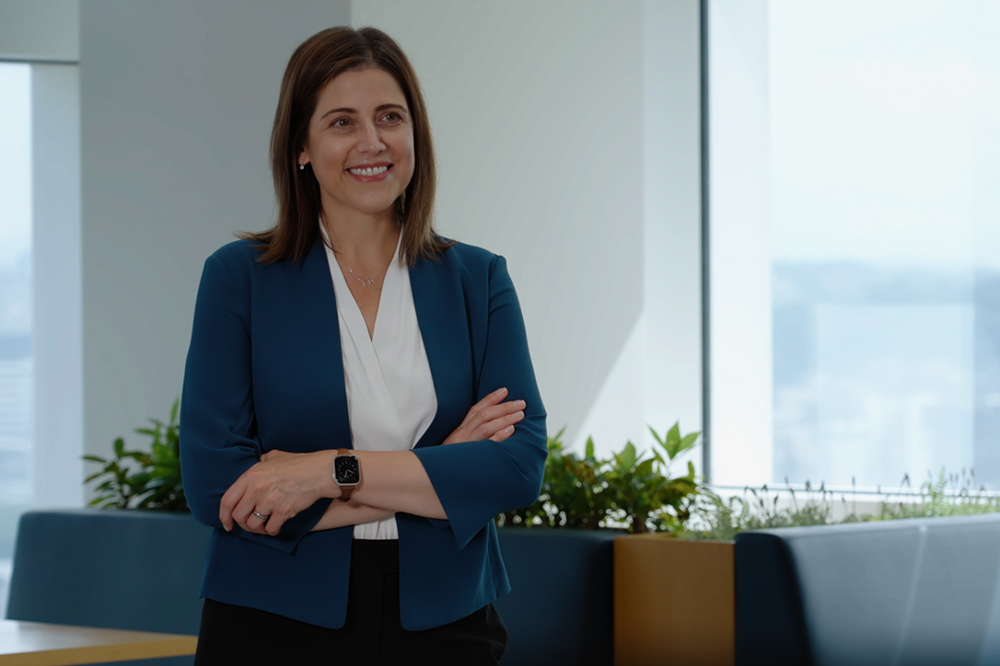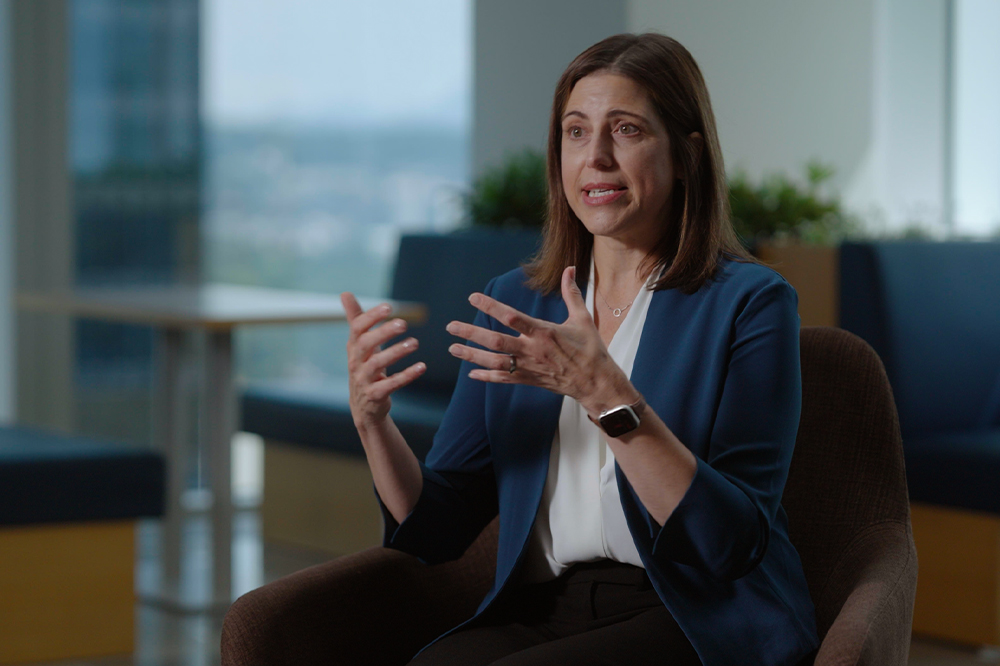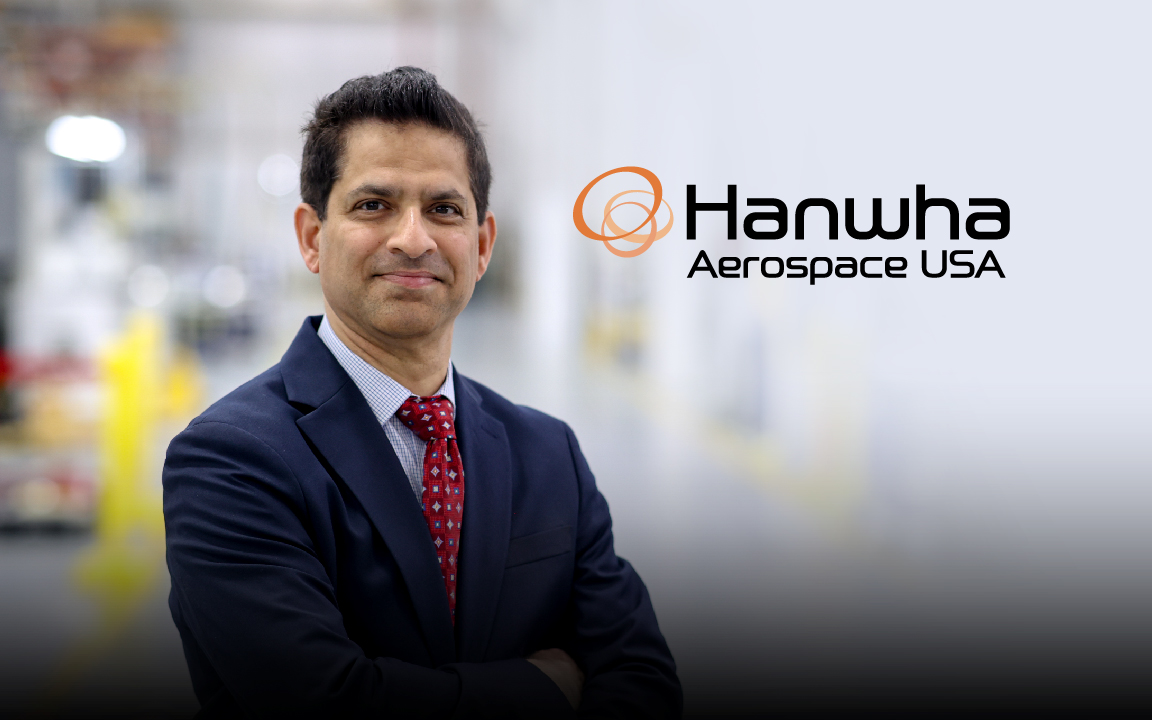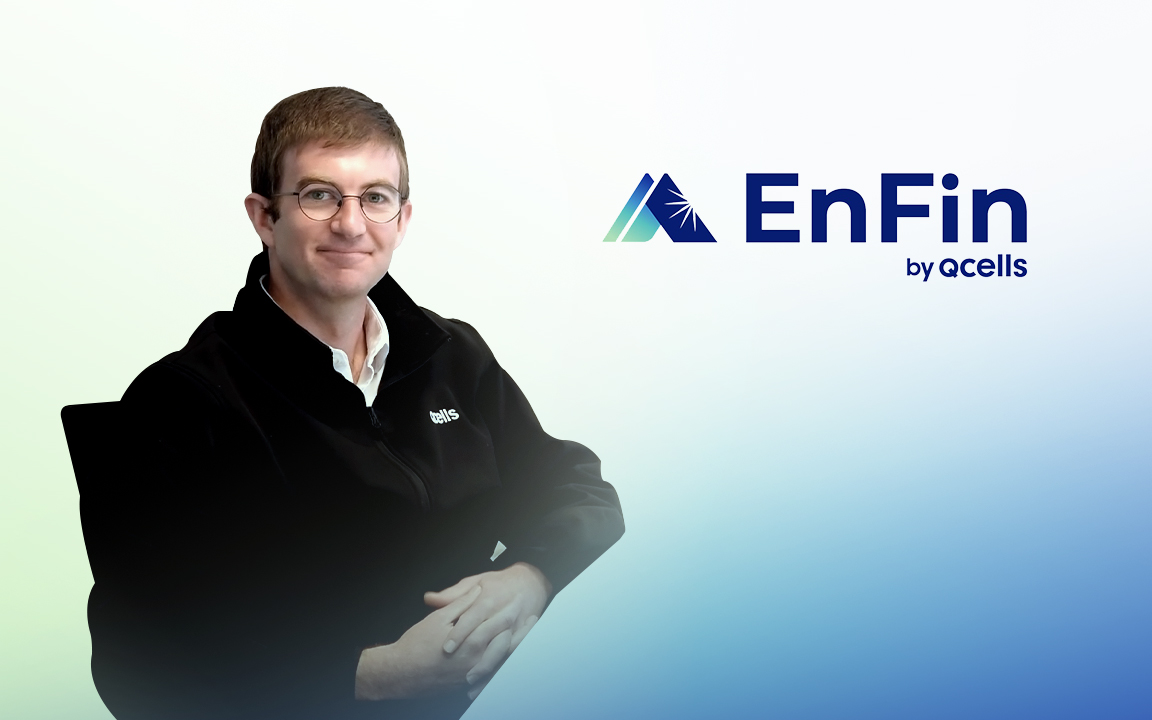Building a sustainable future: Danielle Merfeld’s vision for clean energy innovation at Hanwha Qcells

Danielle Merfeld, Global Chief Technology Officer at Hanwha Qcells, brings decades of experience and a strong passion for clean energy innovation. She joined us to share her insights on the future of solar power and her vision for a world fueled by renewable energy.
Q. Thank you for speaking with us today. Could you start by telling us a little bit about yourself and your background?
I’d love to. I’ve been with Hanwha since 2023, after working at General Electric for 23 years. Much of my career has been devoted to developing technology to enable the clean energy transition. It is very satisfying to use my Ph.D. in Electrical Engineering to contribute to the global challenge of addressing our clean energy needs. I’m also passionate about fostering innovation ecosystems and mentoring promising technical talent. Outside of work, I enjoy hiking and spending time with my family.

Q. What made you join Hanwha Qcells as the Global Chief Technology Officer?
The opportunity to help Qcells continue delivering innovative energy solutions, along with their historic investment in U.S. clean energy manufacturing, were major factors in my decision. Qcells has been turning bold ideas into action, and I wanted to use my experience in advanced energy solutions to build out R&D capabilities in the U.S. to serve growing demand and complement the global R&D team.
“Qcells has been turning bold ideas into action, and I wanted to use my experience in advanced energy solutions to build out R&D capabilities in the U.S. to serve growing demand and complement the global R&D team.”
Q. How does your previous experience align with Hanwha Qcells' vision?
Before I joined Qcells, I gained a lot of experience in the solar and broader renewable energy industries. Most recently, I served as CTO at GE Renewable Energy, where I led innovation efforts for a wide range of clean energy products and services, including photovoltaics, onshore and offshore wind, hydropower, hybrid energy storage solutions, and grid technologies. I think this experience aligns well with Hanwha Qcells' vision of advancing renewable energy technologies and making a significant impact in the global energy transition.
Q. When you first joined, what were your main priorities as CTO?
From the start, my main focus was to oversee Qcells’ research and development for advanced solar products. It’s crucial to accelerate innovation in this area to push the boundaries of what's possible in solar energy.
Q. Can you share some of the exciting innovations currently in the works at Hanwha Qcells?
The range of innovations that we're developing is quite broad.
It starts with our historic focus on solar cells and solar modules, which is the first step in generating energy from solar — when sunlight is transformed into electricity. This is a very exciting technology, and even though it's been around for decades, it’s constantly evolving and advancing.
We’re also working on technologies that convert electricity into usable power for both households and the electrical grid. Power electronics, controls, and software ensure that this electricity is effectively utilized.
The next stage of technology that we’re focused on is building systems that integrate electricity into markets, including grid operations and home energy systems. This includes both software and hardware designed to extract more value from solar than ever before.
Q. With such a broad range of projects currently underway, which one excites you the most right now?
That has to be the work we’re doing with perovskite tandem technology. It's essentially the next generation of solar cells, building on our conventional silicon-based technology, which currently powers most of the world's solar systems.
By adding a perovskite thin-film layer on top of the silicon cell, we're able to capture a broader spectrum of sunlight. This combination unlocks new levels of efficiency, offering greater performance at a lower cost. It's an exciting next step in the solar arena.
Q. AI is a hot topic these days. How do you see it in relation to the future of renewable energy?
AI will play a pivotal role in transforming our energy systems. By processing large amounts of data, AI enables quick, complex decisions that optimize energy generation, storage, and grid management. Without AI, it’s unlikely that we will achieve the full energy transition in time to counter the biggest impacts of climate change.
Q. How can Qcells utilize AI, and what benefits can it bring?
Qcells is uniquely positioned to leverage AI because we have access to data across the entire spectrum — from manufacturing solar panels and operating electrical systems to designing, installing, and running virtual power plants at all scales. By extracting value from this data and using the insights gained, we’re able to enhance our capabilities, making AI an integral part of how we operate.

Q. What do you think are some of the biggest challenges facing the solar industry, and how is Qcells addressing them?
There are a few key challenges that the entire solar industry must overcome.
The first is the need for increased transmission. Solar is one of the few renewable resources that can be widely distributed. It’s efficient and low-cost, but in some regions an expansion of the grid is required to transmit the energy to where it’s needed. The limitations of our current grid are stark, so expanding our current transmission grid is essential.
The second aspect is increasing the value of solar. While it’s affordable and accessible, it’s also limited to when you have access to sunlight. Therefore, advancing storage technology and reducing storage costs are crucial to overcoming this limitation.
Qcells is also addressing supply chain volatility. As more regions adopt solar technology, they need access to a supply chain that is not impacted by climate change, extreme weather, or geopolitical disruptions. Therefore, Qcells is focused on creating domestic supply chains in regions where there is solar growth, ensuring smoother and more consistent access to this low-cost technology.
Q. How do you see Qcells contributing to the global transition to renewable energy, and what do you hope to achieve personally?
Around the world, nearly a billion people still lack access to energy, with even more struggling to access affordable or clean energy. Energy is the foundation of economic development, security, health, and prosperity, and solar energy is key to unlocking this potential — there is no place on Earth that cannot access solar energy. My hope is for Qcells to fulfill its vision of making reliable, affordable energy accessible to everyone. This will transform the world.
Q. What does being part of the Hanwha team mean to you, and what drives you and your colleagues in your daily work?
What motivates my team and me is the idea that we're making a real difference in the world. It’s a huge challenge that we are tackling as part of a global community. It won't always be easy — there will be obstacles along the way — but part of the joy comes from seeing the positive outcomes and moving forward. That progress far outweighs the difficulties, and our optimism is rooted in seeing the impact we can make.
“What motivates my team and me is the idea that we're making a real difference in the world. It won't always be easy, but part of the joy comes from seeing the positive outcomes and moving forward. Our optimism is rooted in seeing the impact we can make.”
Q. What advice would you give to aspiring engineers who want to work in the clean energy industry?
My advice to young engineers aspiring to enter the clean energy industry is to follow what excites you most because it will connect to all other areas of technology. There's no need to become a specialist in one area because you perceive it to be the main event. There is a requirement for all types of engineering, technology, and science to come together. So, follow your passion but be ready to collaborate because you will not achieve much on your own. This is a team sport, and it will require you to work very effectively with others to be successful.
About Dr. Danielle Merfeld
With over 20 years of experience in the clean energy sector, Dr. Danielle Merfeld has led advancements across a broad range of renewable technologies, including photovoltaics, wind power, energy storage, and grid systems. As a forward-thinking leader and passionate advocate for sustainable energy, she is dedicated to advancing cutting-edge research and innovations that accelerate the global transition to renewable energy.
Keep up with Danielle on LinkedIn.
Get the latest news about Hanwha, right in your inbox.
Fields marked with * are mandatory.
- Non-employee
- Employee



